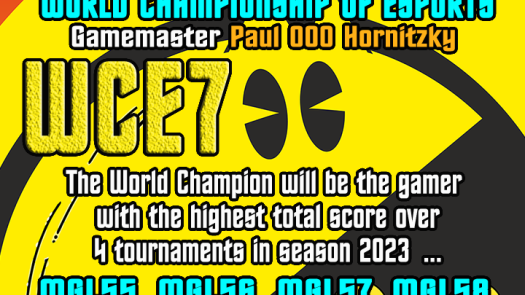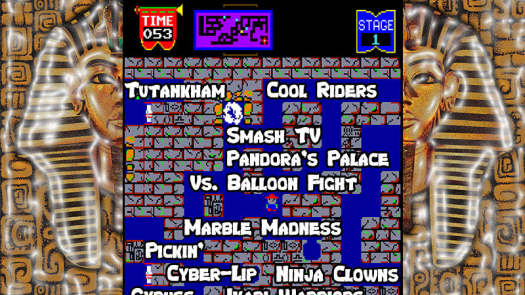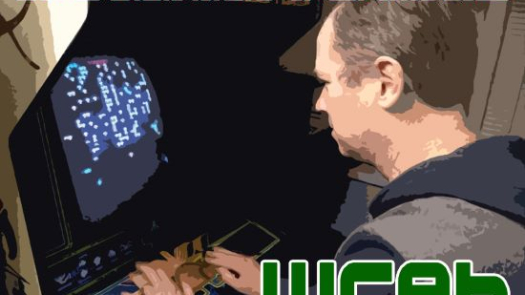The battle royale genre has taken off thanks to game like Fortnite and PLAYERUNKNOWN’S Battlegrounds, and now that H1Z1 has laid the groundwork for battle royale esports with the H1 Pro League there’s no doubt the other games will follow suit. Longtime DOTA 2 competitors Team Secret isn’t waiting around, recently snatching up a few Fortnite pros for its esports team...but there’s a slight issue at play here of which the broader esports scene should be wary.
One of the players Team Secret signed to its not-yet-existent Fortnite squad is a mere 13 years old. Kyle "Mongraal" Jackson, the teen in question who hails from the United Kingdom, is now a professional esports player with 21, 20, and 17 year old teammates. The age gap notwithstanding, this signing has unwittingly initiated a decision that esports in general hasn’t really had to make yet: how young is too young to compete?
A history of young'uns...
Precedent says “no age is too young,” as young esports players are obviously not difficult to find. The Guinness Book of World Records declares six-year-old Halo 2 player Victor “Lil Poison” De Leon to be the youngest in history. The youngest to $1 million earned is 16-year-old Sumail “Suma1L” Hassan Syed, who achieved the record as part of the DOTA 2 International winning Evil Geniuses team in 2015. Suma1L was a full three years older than Mongraal when he won his money, while Lil Poison owns a record that may never be broken.

One could argue, however, that esports in 2018 is far different than esports in 2004 when Lil Poison hit the scene. Back then esports was more of an underground movement, a career in professional gaming though to be an impossibility. Go back to the tournament Lil Poison is famous for, where he placed 2nd out of 550 in Chicago. That was Halo 2 in 2005, not the grand spectacle that is the Halo World Championships or Overwatch League. Esports now is a business, inching toward being a legitimate mainstream sport, and with that comes a whole different responsibility.
Take this quote from a 2007 New York Times piece on Lil Poison: “To critics who suggest that he is ruining Victor’s childhood, Mr. De Leon shrugs like his son, and notes that when not training for a specific competition, his Xbox time averages about two hours a day. Away from the screen, he said, Victor is a typical third grader who likes to bike and swim and plays the violin.” The “typical third grader” idea simply isn’t compatible with today’s esports environment, instead it would become a job 40 hours a week or more. His childhood, from the time he began playing, would be lost. Without even getting into child labor laws and whether they would apply here, that’s a lot to ask of a kid under the working age.
Who bears the burden?
The next question one may ask is simple: who bears the responsibility of making sure the age barrier stays appropriate? It’s not the kids themselves; I can’t blame them for wanting to make a dream come true and help their families in the process. Same with the parents of the child, with careful consideration and discussion I would probably choose to allow my child to compete as well. Heck, if a company wanted to throw me a bunch of money to play video games all day back then I’d have jumped right on it and my parents would have backed me up. It’d be silly not to expect people to try and boost their financial standing through a lucrative esports deal.

That means the teams, and perhaps even the developers of the games themselves, need to be the one to set the guidelines in the first place. Overwatch League does a great job of this, requiring all players be 18 in order to play. Call of Duty World League follows the same guideline. Other leagues have similar restrictions, like the League of Legends Championship Series’ 17-year-old minimum, but that doesn’t stop the teams themselves from signing kids younger than that and holding their rights until they come of age.
It’s the same smarmy tactic college sports teams sometimes use on children who show tremendous athletic ability at a young age. The University of Nevada just last year offered a football scholarship to a nine year old, setting off a whole whirlwind of controversy. The University of Southern California gave one to a seventh grader, Florida Atlantic University did the same, and even the University of Hawaii offered a scholarship to a fifth grader.
Granted these moves aren’t much more than headline grabbers, as the children may never actually play for the teams offering, but that is where the esports version of these signings differs. The young kids and the pre-teens can jump right in and start practicing with their teams. There’s very little oversight into how these kids spend their time once they’re signed, and who expects a 13-year-old to forego playing video games professionally to finish his math homework? No one, which is why more stringent measures need to be in place.
Is there an upside to signing young?
The counter argument to age restrictions is that, with kids learning to play so early in life and most esports athletes returning in their early-mid 20s, why not let the kids take advantage of their best gaming years? I can see the logic in this, but just because a 13-year-old kid can play video games all day and shirk other responsibilities doesn’t mean he should. 13-year-old me would punch 31-year-old me in the face for saying that, but it’s the unfortunate truth.

If it were up to me, a hard cap at 16 (the legal working age in the USA) is the best solution. It gives a player two more years than an 18-year-old restriction does, but doesn’t drop a small kid into a firestorm. I’d also add a rider to that restriction that all players of high school age need to maintain a certain grade point average in order to remain eligible, a la the NCAA’s 2.0 average, just to be sure that the kids are still learning and developing their brains. I bet a lot of parents would be pleased with that idea too.
Maybe it’s my inner dad, but I believe signing young players to esports teams is a bad idea. While playing games and earning money seems ideal for a young kid and his or her parents, the pressures of being in the public eye and keeping the quality of play up to snuff are things young minds aren’t entirely prepared to deal with. It feels like every other day another esports player is getting fined or suspended for doing or saying something offensive, how can we expect the future youth to be able to handle things any differently? Let the kids be kids. There’ll be time for them to join the fast-paced esports scene soon enough.







